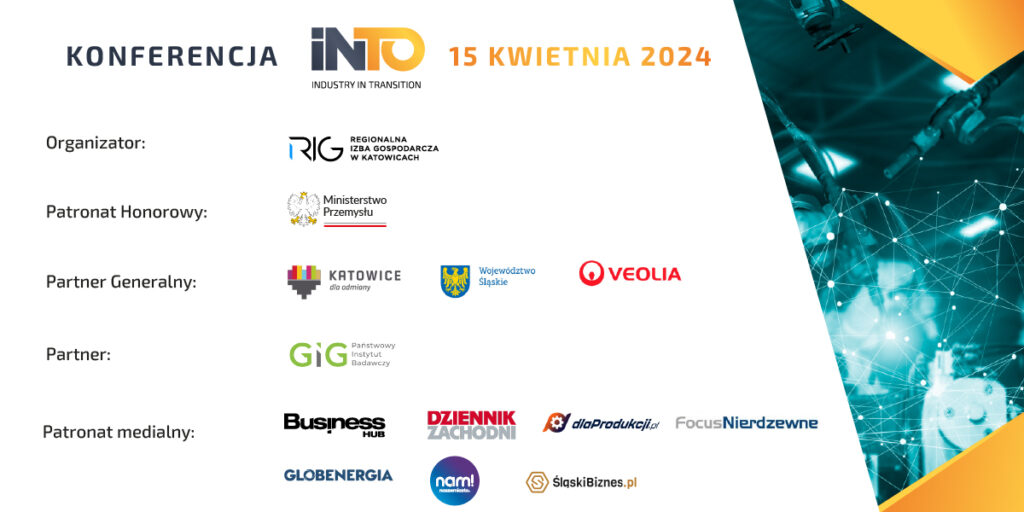Energy transition as an opportunity for Polish industry, taking responsibility for achieving the goals of sustainable development and a closed-loop economy, the role of achieving autonomy in critical raw materials in Poland and Europe, and the need to verify “hard” dates for achieving emission reductions and climate neutrality – were discussed during the “Industry in Transition” conference, organized by the Regional Chamber of Commerce in Katowice. The event – under the patronage of the Ministry of Industry – took place on April 15 at the International Congress Center in Katowice.
More than 250 people took part in the conference and industry panels, among them were representatives of the European Commission and the European Parliament, Polish government ministers, MPs and senators, representatives of local authorities, higher education, members of the top management of industrial and energy companies, experts, representatives of industry organizations and the media.
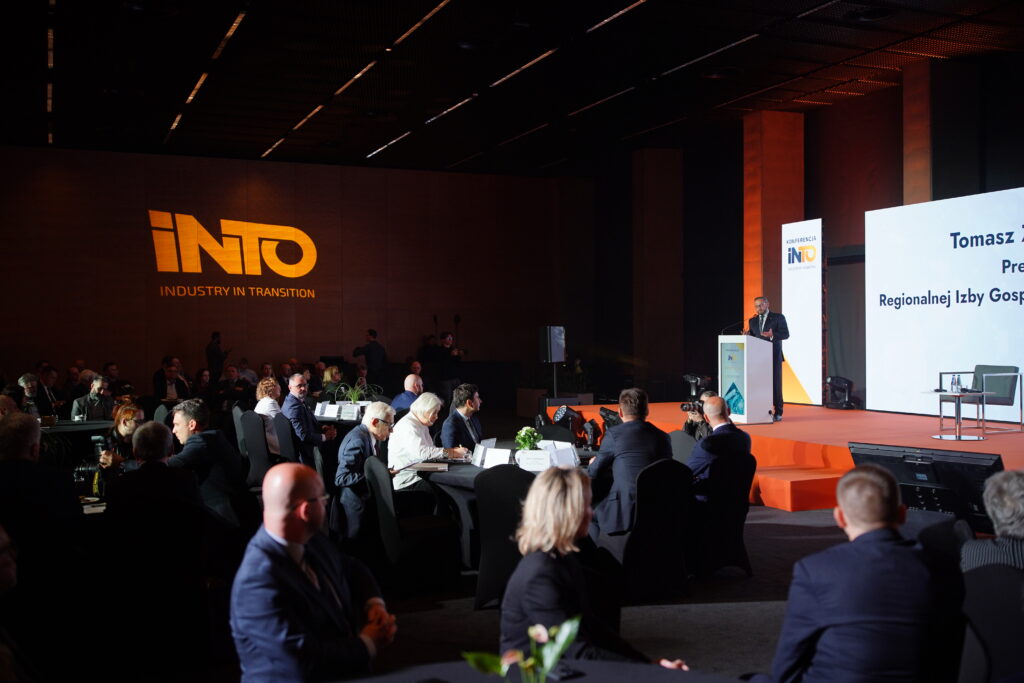
Marek Wojcik, the Silesian governor, pointed out the symbolic date of the event – on April 15, €6.3 billion from the Reconstruction and Resilience Fund (RRF) flowed into Poland.
–This is an important step in implementing Poland’s National Reconstruction Plan. We need support for the transformation, especially for our province, which is the industrial center of Poland – Marek Wojcik stressed.
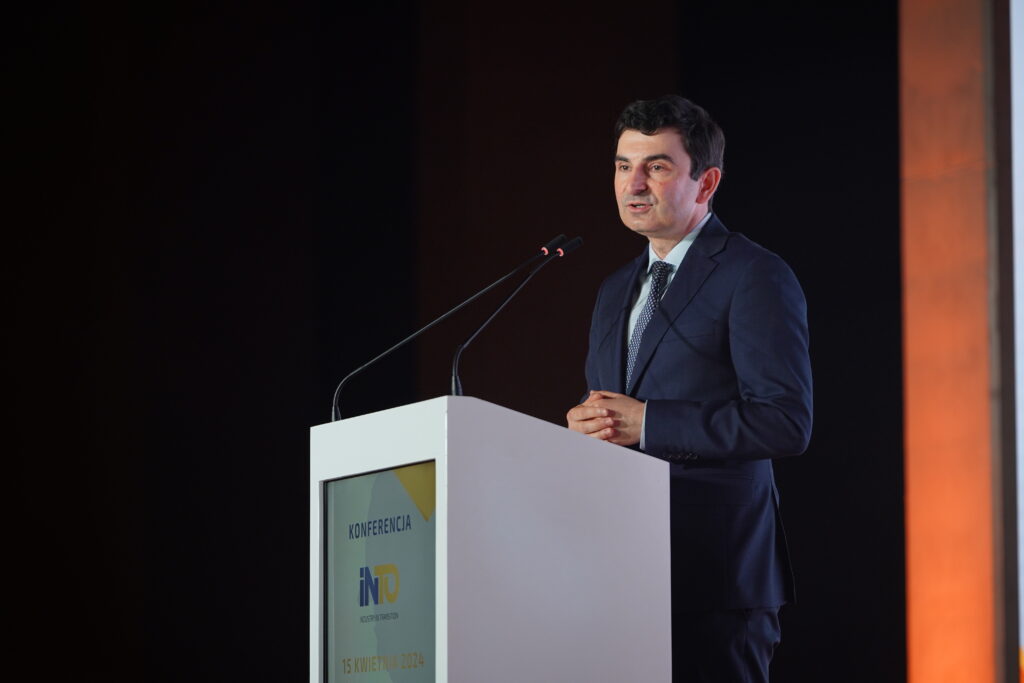
Kazimierz Karolczak, Chairman of the Górnośląsko-Zagłębiowska Metropolia, assured that he is calm about the future, as cities built on industry will drive our region and provide residents with good working conditions and a high quality of life as they develop towards new technologies.
The GZM Chairman’s voice was echoed by Marcin Krupa, Mayor of Katowice: – Thank you that another important discussion is taking place in the capital of Upper Silesia, where there is no shortage of experts and educated staff. Here, the transformation has been going on for more than 30 years, and had it not been for courageous decisions during that difficult time, we would not be in the economic position we are in today. Importantly, from a social point of view, the transformation has taken place without significant harm to residents.
As part of the introductory speeches, representatives of the Commission and the European Parliament spoke, connecting online with conference participants.
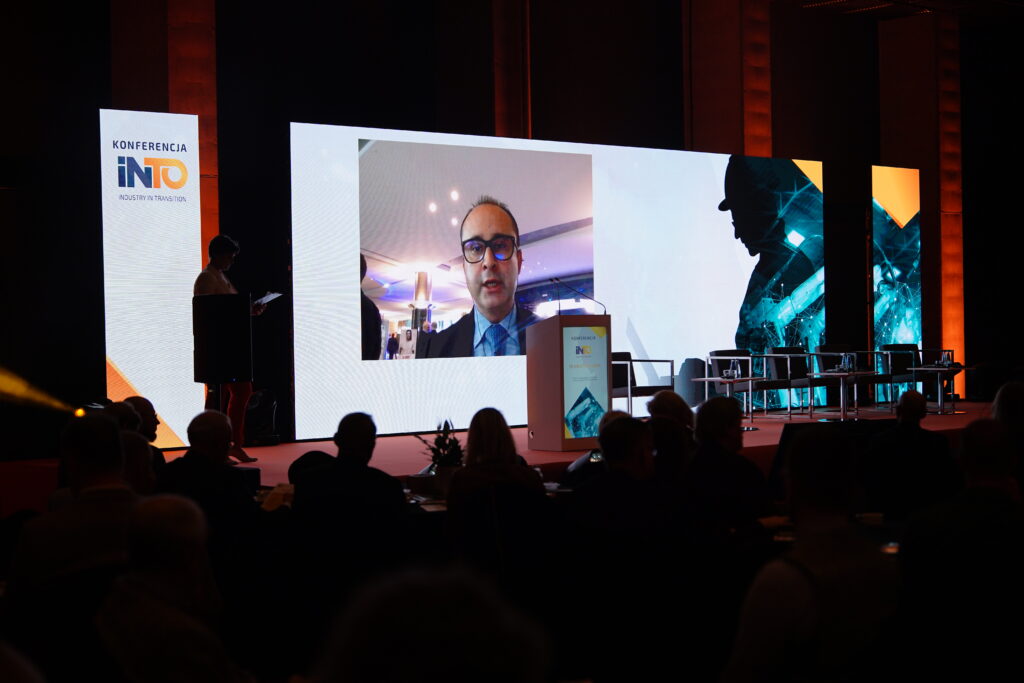
Thierry Breton, EU Commissioner for the Internal Market, spoke about the role Poland has to play in the new European policy related to the decarbonization of industry.
–The challenge is to diversify away from fossil fuels so as to move toward clean energy while keeping jobs. Take Upper Silesia, for example, which was based on mining and had a very strong automotive or chemical sector. The region could become a clean technology hub, as well as steel projects. From the point of view of the increased EU budget, as well as the chance to provide a level playing field for all, I believe we are in a position to take advantage of these opportunities. We have embarked on the right path, and let’s follow it boldly. The new industry can be a catalyst for competitiveness, as well as for Europe’s prosperity – Thierry Breton pointed out.
Cristian-Silviu Bușoi, Member of the European Parliament, Chairman of the Committee on Industry, Research and Energy, drew attention to the need to strengthen energy security and the role of responsible leadership of pro-European leaders in EU countries.
– Europe is facing very high energy prices and supply problems. We are working on new regulations in the EU to strengthen energy security. We are also fighting for the use of hydrogen to create a clean industry. We need to be pragmatic and act in solidarity. The Green Deal policy should not only facilitate investment in clean energy technologies, but also support existing industries related to steel, aluminum, cement or petrochemicals to make the transition easier for these sectors. We want to decarbonize, and at the same time make the EU economies remain competitive compared to others in the world – the chairman of the EP Committee on Industry, Research and Energy stressed.
Professor Jerzy Buzek also spoke as part of the introductory remarks at the conference. The MEP called for taking responsibility for what the transformation of the Silesian Voivodeship will look like over the next several years. He recalled the Regional Contract for, at the time, the Katowice Voivodeship. The document, which contains the region’s socio-economic restructuring concept, was developed in 1995 on the initiative of the Chamber of Commerce and Industry in Katowice.
–In the 1990s, the situation of the economy was dramatic, there was no market or possibility of external financial assistance. Today, thanks to the Just Transition Fund, the Silesian province receives gigantic funds from the European Union. In many places, such as Rybnik, you can see a colossal improvement in the state of the air. The previous Polish government agreed to EU regulations towards climate neutrality. Let’s not forget this, reindustrialization is a necessity – appealed Prof. Jerzy Buzek.
The Ministry of Industry was inaugurated in Katowice in March. The head of the new ministry presented a vision for transforming the energy mix – from coal to nuclear – as part of the ministry’s activities.
–The industry is to be diverse and modern. The leading industries are raw materials and fuels and energy. A law is being processed so that all raw materials are clustered in Silesia. We would like a smooth transition, and there will be one when the law and regulations help industry and business in general, rather than hinder it – said Minister Marzena Czarnecka.
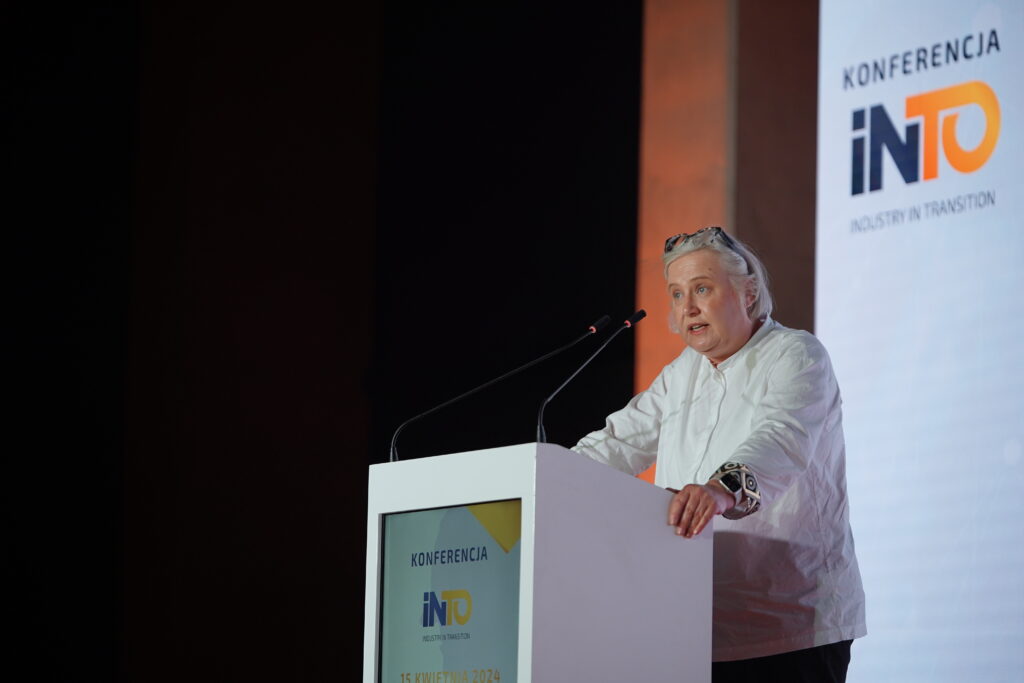
Tomasz Zjawiony, President of the Chamber of Commerce and Industry in Katowice, organizer of the event, talked about the birth of the idea for the “Industry in Transition” conference. During last year’s European Steel Congress STEEL 2023, also organized by the Chamber, discussants raised the need to expand the discussion, in view of the changing geopolitical situation, to include energy and industry transformation.
– Today we are continuing this debate, sending a clear signal to the Commission and the European Parliament that they should listen to the voice of business. The European Union is the third economic power in the world, generating 16 percent of the world’s GDP, and therefore has a huge influence on how the global economy will develop. Climate change, growing public expectations for sustainability are influencing increasing competition. We should remember that industry is the main engine of development and source of innovation. It is also a key element in the security of the Polish economy, accounting for 20% of the national GDP. As the world moves toward CO2 reduction and green energy, we must be ready to adapt to remain competitive. We face strategic choices and questions. Such as – who will pay for it? I hope that through the exchange of opinions at today’s meeting, we will jointly look for the best direction for the inevitable changes we all face – summarized the first part of the conference by the President of the CCI in Katowice.
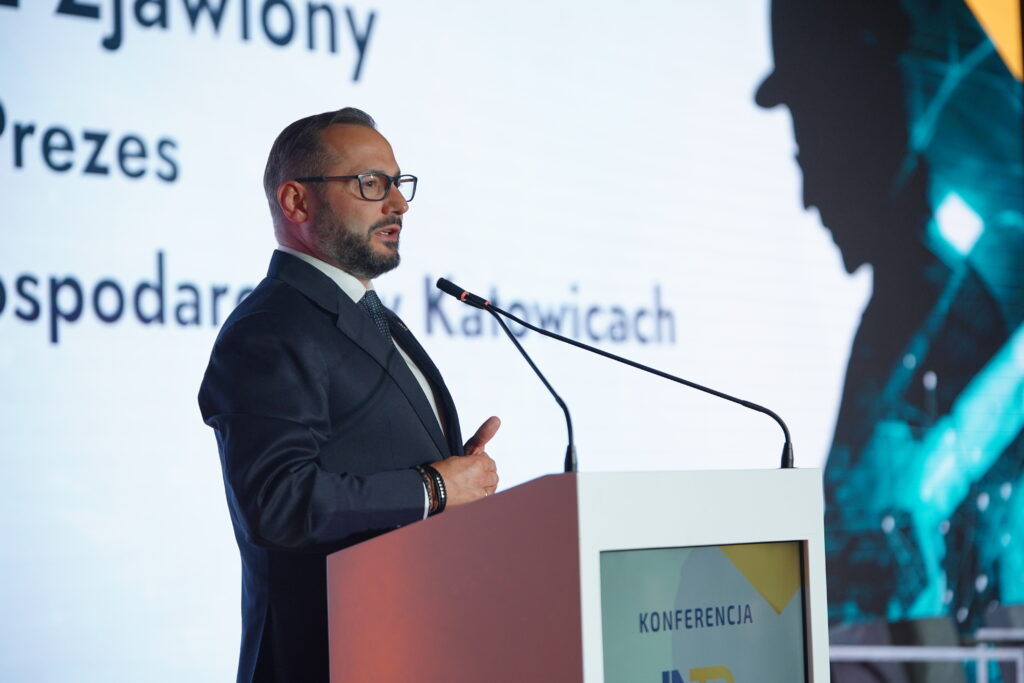
The second part of the conference featured two panel discussions. During the first one, they talked about one of the biggest challenges for the European economy – the EU’s open strategic autonomy. We are not immune to the possibility of disrupting supply chains, we do not have autonomy when it comes to critical and strategic fuels, participants in the discussion stressed.
Prof. Jerzy Buzek, chairing the panel, noted: – We want to decarbonize in a rational and decisive way, and at the same time we need to gain autonomy. Thirty years ago, we talked about globalization. In 2008, after the financial crisis, about reindustrialization. Countries that have retained a lot of industry have come through this difficult time better. We are thinking about the future of industry.
Creating a closed-loop economy is an important element for achieving autonomy. One of the leaders on the Polish market, companies setting a good example of how to operate in such a formula, is the Veolia Group.
– What happened after Russia’s attack on Ukraine showed that autonomy in energy is much more important than we assumed before. A closed-loop economy is insanely important. We can see what we can do, such as using the ash from burning coal to make cement. There’s a lot of waste energy that can be used, we’re working with Volkswagen in Poznan, for example, we want to use water from sewage for district heating networks. The European Green Deal is the driving force behind the transformation, if we channel our efforts and funds well, we are able to achieve it – commented Luiz Hanania, President and CEO of Veolia in Poland.
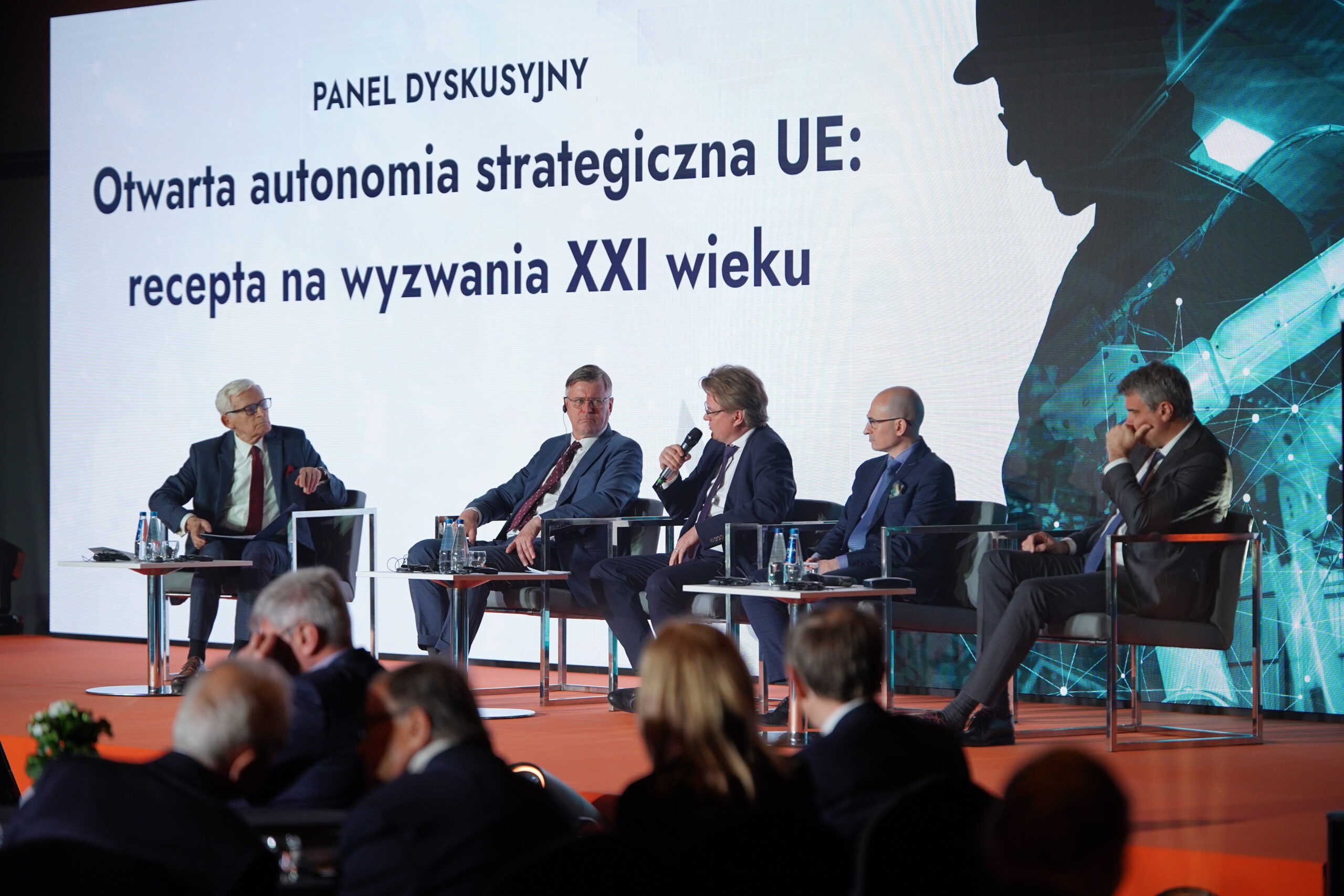
The topic of costs, risks and benefits for European Union member states aiming to achieve a 90% reduction in emissions by 2040 and climate neutrality by 2050 was discussed by participants in the second panel. Decarbonization of Europe by 2050 – is a cost of 40 trillion euros per year, in turn, 2.5 trillion euros cost the process of decarbonization of the Polish economy. Who will pay for it? Energy consumers, entrepreneurs, taxpayers? Can they afford it? Should we press European bodies to change the dates of regulation? Decarbonization for Poland, which is still 75 percent coal-based, is a huge challenge.
Nevertheless, the panelists remained moderately optimistic about the future of the transformation of the economy.
– One should lobby those in power to reduce property taxes in exchange for, for example, RES installations, then there would be no need for regulation. Heavy industry generates impacts, but also does a lot of good. We’re talking about trillions, there must be a sufficiently distant horizon to achieve ambitious goals, which must be supported by motivation, including financial – said Michal Dabrowski, member of the Supervisory Board of the Industrial Development Agency.
–We need good winds, the steel industry wants to stay in Europe. Regulations must not make production unprofitable. Especially since the industry is working to reduce CO2 emissions. There are new technologies, expensive ones like electric furnaces, but they are being introduced. New steels are being produced to make car bodies lighter. In rail transportation – long rails for high-speed rail. We see an opportunity for development – steel will be needed for wind farms, photovoltaics. It is necessary to develop this industry in Poland – added Wojciech Koszuta, CEO of ArcelorMittal Poland.
– It’s worth being more active and not being afraid of innovation. The largest companies on the market today – 30 years ago did not exist. New ones are being created all the time, and Silesia has been and will continue to be the engine of our economy – concluded Jaroslaw Wajer, Partner at EY, Leader of the Energy Department and Leader of Sustainability Consulting in Poland and the CESA region.
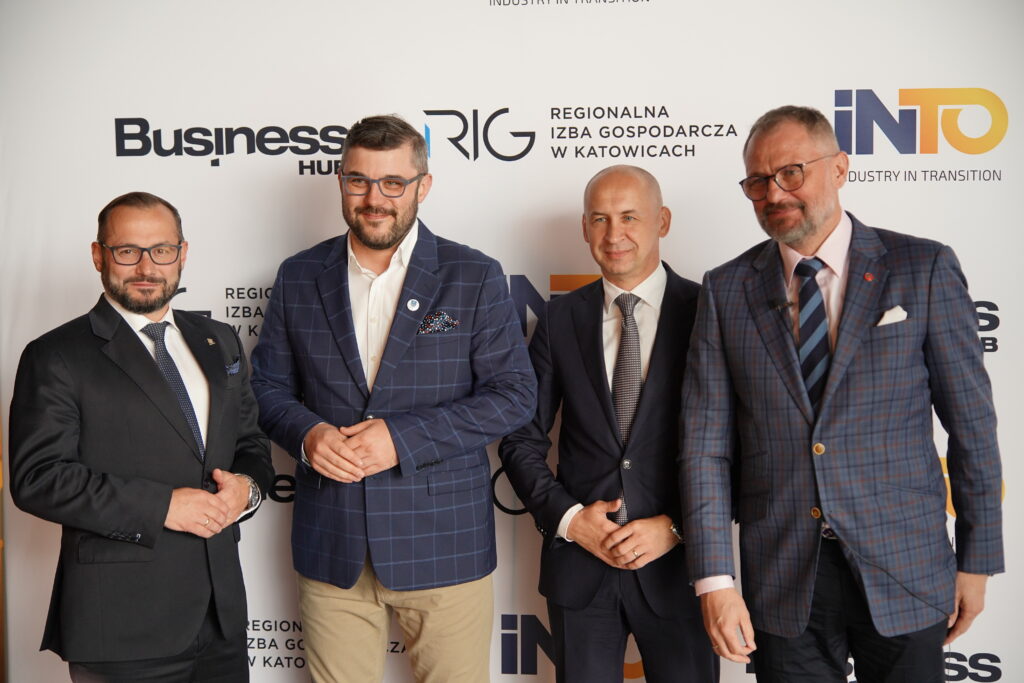
Industry and energy transition issues will continue at the European Industry and Energy Congress “Industry in Transition,” which will take place June 3-4, 2024 at the International Congress Center in Katowice.
Jaga Kolawa
